17 May2022
By Nicole Dunn
Every student deserves to learn and thrive in a school environment that supports student identities, equips them for the future, and teaches the truth. Unfortunately, across the country, we have seen attempts to surveil and gag educators and whitewash the history of the United States by attacking culturally responsive curriculum, respect for LGBTQ+ students, and diversity, equity, and inclusion. We need to teach students the truth of our history to enable them to learn from the wisdom and mistakes of our past to help create a more just and equitable future. We must ensure students have an honest and accurate education that helps them develop critical thinking skills.
On Tuesday, May 24, The Leadership Conference Education Fund will host the second webinar in its Teaching Truth series in collaboration with AACTE, Ed Trust, GLSEN, IDRA, and National Black Justice Coalition. In this webinar, we will hear from messaging experts on how to break through the noise and make a proactive, compelling, and mobilizing case for the importance of teaching the truth in our schools. Additionally, we will hear from advocates who are taking messaging research and putting it into action to fight against the attacks on honest teaching in our schools.
Speakers include
- Victoria Kirby York, National Black Justice Coalition
- Anthony Torres, ASO Communications
- Thomas Marshall, IDRA
- Sumi Cho, African American Policy Forum
RSVP for the webinar today.
18 Apr2022
By Carolyn Phenicie
AACTE congratulates Kurt Russell, an alumnus of AACTE member institution the College of Wooster.
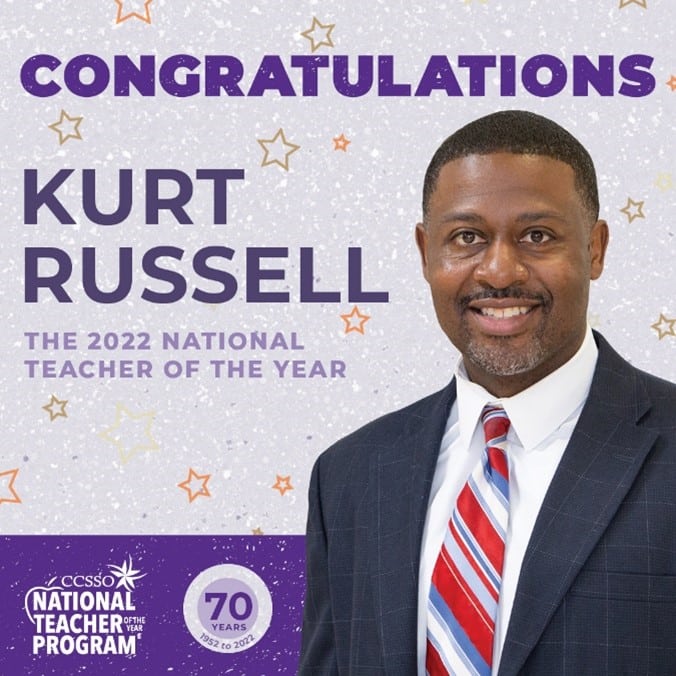 The Council of Chief State School Officers (CCSSO) today announced that Kurt Russell, a veteran high school history teacher, is the 2022 National Teacher of the Year.
The Council of Chief State School Officers (CCSSO) today announced that Kurt Russell, a veteran high school history teacher, is the 2022 National Teacher of the Year.
Russell, currently in his 25th year in the classroom, teaches at Oberlin High School in Oberlin, Ohio, where he was born and raised. Inspired to become an educator by his first Black male teacher, Russell works to emphasize cultural relevance and diverse representation in the curriculum of classes he teaches, including African American history; U.S. history; International Baccalaureate History of the Americas; and Race, Gender and Oppression.
Russell is also the school’s head varsity basketball coach. He sees basketball as an extension of the classroom and a place to teach life lessons on adversity and success. Additionally, Russell is the faculty advisor to a student-led Black Student Union, whose work has led to positive impacts for students across racial groups.
11 Apr2022
By Nicole Dunn

AACTE, in its efforts to revolutionize education, is partnering with Digital Promise to support their work in tackling systems-level transformation that directly address the challenges students face. Digital Promise wants to ensure that each student has equitable access to educators and learning experiences that affirm and honor their identities, expertise, and cultures. Through professional development and its free and open-source tool, the Learner Variability Project LVN), Digital Promise empowers educators to deepen their understanding of learner variability and embrace equitable and inclusive practices that support the whole child.
11 Apr2022
By Dian Dong
Prior to the COVID-19 pandemic, teacher preparation programs, as well as key stakeholders such as states, accreditation bodies, and teacher unions and organizations, were grappling with shifting demands on teachers and consequently on teacher education. The pandemic has led to deepening staffing shortages exacerbating the needs of PK-12 schools and thus placing increased pressures on teacher preparation programs (TPPs) to creatively address the needs. As TPPs and stakeholders seek to address quality teacher preparation in these changing times, it is critical to understand the landscape of TPPs, teacher candidates, and TPP evaluation systems. The National Academy of Education (NAEd) just released two commissioned papers that specifically target these questions.
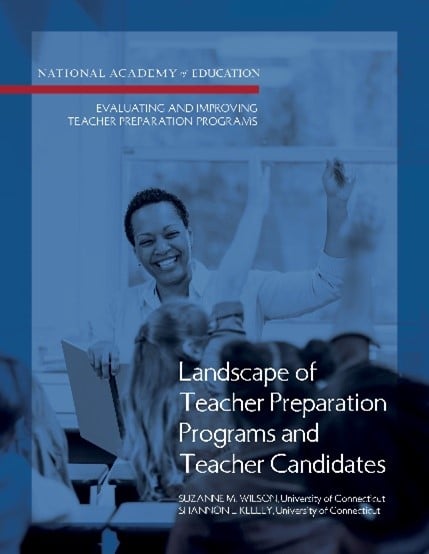 In Landscape of Teacher Preparation Program and Teacher Candidates, the authors Suzanne Wilson and Shannon Kelley discuss the contemporary teacher preparation landscape and the teacher candidates attending those programs. After providing an overview of the changing landscape of TPPs in the past three decades, the authors describe what is known about the teacher candidates who attend TPPs, including their demographics, academic ability, and motivations to teach. Given the need to attract new teachers, the authors offer a comprehensive synthesis of programmatic and policy approaches to recruiting and retaining new teacher candidates. The paper concludes with implications for policymakers, educators, teacher educators, and researchers as we face potential teacher shortages in the coming years.
In Landscape of Teacher Preparation Program and Teacher Candidates, the authors Suzanne Wilson and Shannon Kelley discuss the contemporary teacher preparation landscape and the teacher candidates attending those programs. After providing an overview of the changing landscape of TPPs in the past three decades, the authors describe what is known about the teacher candidates who attend TPPs, including their demographics, academic ability, and motivations to teach. Given the need to attract new teachers, the authors offer a comprehensive synthesis of programmatic and policy approaches to recruiting and retaining new teacher candidates. The paper concludes with implications for policymakers, educators, teacher educators, and researchers as we face potential teacher shortages in the coming years.
11 Apr2022
By Jacqueline Rodriguez
AACTE will facilitate a webinar, “Educator Preparation Innovation: Creating Pathways to Strengthen Recruitment,” on Tuesday, April 19. The virtual session is part of the Council for Exceptional Children (CEC) and the CEEDAR Center 12-part webinar series focused on evidence-based strategies to strengthen and diversify the special education workforce.
According to multiple research studies, fully prepared teachers in special education are more effective and are more likely to remain in the teaching profession than are teachers who are not fully prepared. It is clear that public schools need fully prepared and credentialed special education teachers.
04 Apr2022
By Laura S. Hamilton and Ace Parsi
“Educators are actually our nation’s first responders for democracy,” said Jacqueline Rodriguez, AACTE vice president, policy, advocacy, and research, at the Educating for American Democracy and ETS Symposium.
Our democracy is facing deep challenges that demand an educational response. The Educating for American Democracy (EAD) Roadmap responds to this challenge, not through answers, but rich questions that animate the underlying themes and tensions of our democracy, ensuring students develop key civic capacities while engaging in civil discourse and civic friendship. The EAD Roadmap was the product of collaboration among more than 300 academics, historians, political scientists, K–12 educators, district and state administrators, civics providers, students and others representing viewpoint, professional and demographic diversity. Now in its implementation phase, the EAD initiative represents a call to action for investments in strengthening history and civic learning, and to ensure that civic learning opportunities are delivered equitably throughout the country.
25 Mar2022
By Jacqueline Rodriguez and Nicole Dunn
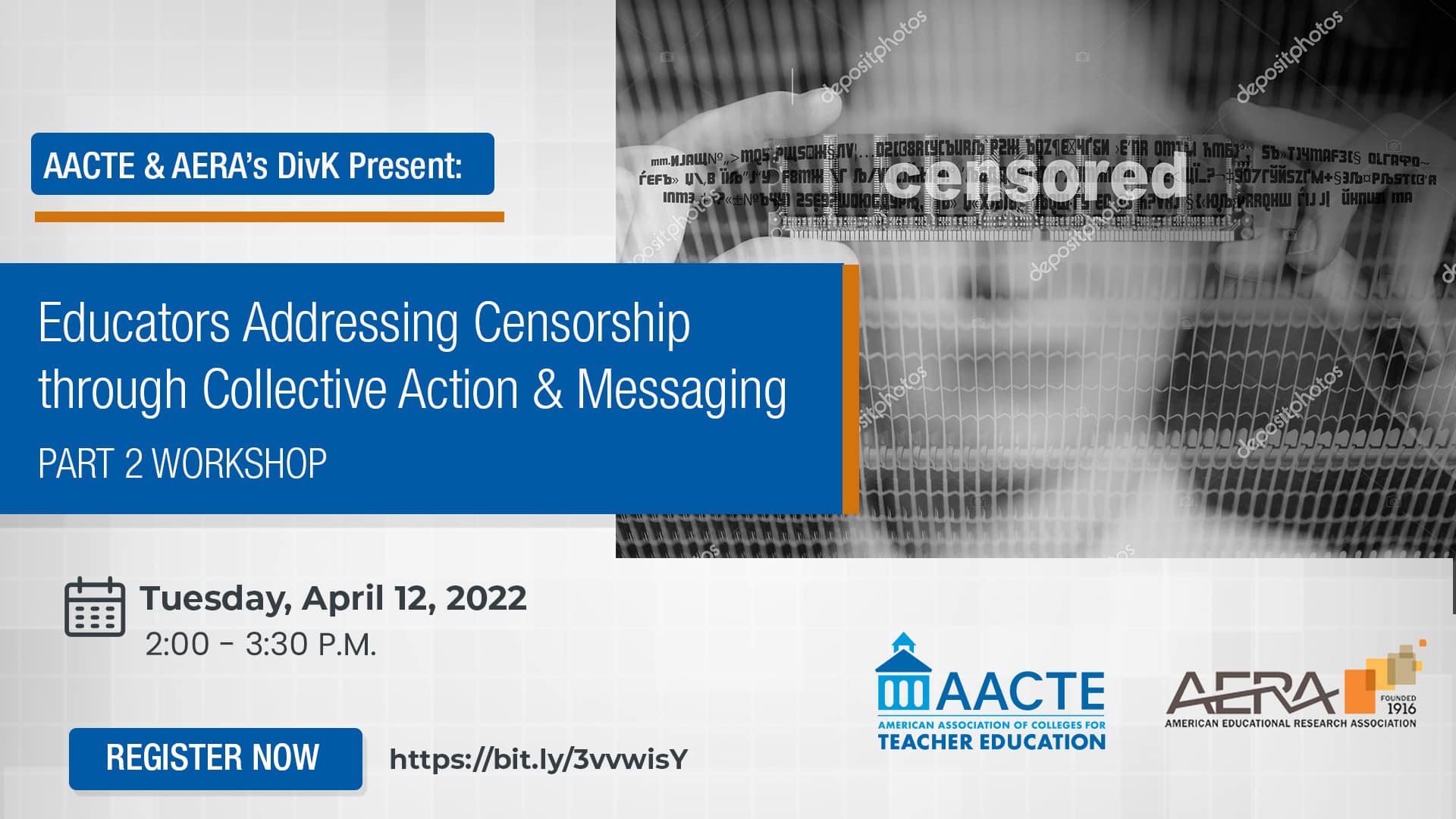 AACTE continues its collaboration with AERA’s Division K: Teaching and Teacher Education to produce an in-depth, scaffolded, three-part series of professional learning opportunities addressing the recent uptick in education censorship across the nation. The first presentation of the series took place as a Deeper Dive session during AACTE’s Annual Meeting in New Orleans. On April 12, AACTE and AERA Division K will co-host a workshop: Educators Addressing Censorship through Collective Action & Messaging, which will include members of our P-20 education system. The third session in our series is a Town Hall taking place during the AERA Conference in late April where Lynn Gangone, AACTE CEO and president will be moderating alongside AERA Executive Director, Felice Levine, and Division K Chair, Dorothea Anagnostopoulos.
AACTE continues its collaboration with AERA’s Division K: Teaching and Teacher Education to produce an in-depth, scaffolded, three-part series of professional learning opportunities addressing the recent uptick in education censorship across the nation. The first presentation of the series took place as a Deeper Dive session during AACTE’s Annual Meeting in New Orleans. On April 12, AACTE and AERA Division K will co-host a workshop: Educators Addressing Censorship through Collective Action & Messaging, which will include members of our P-20 education system. The third session in our series is a Town Hall taking place during the AERA Conference in late April where Lynn Gangone, AACTE CEO and president will be moderating alongside AERA Executive Director, Felice Levine, and Division K Chair, Dorothea Anagnostopoulos.
08 Mar2022
By AACTE
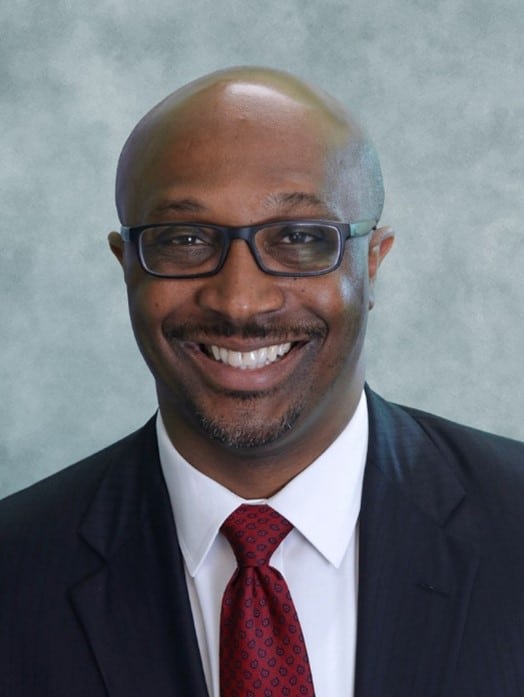 Curtis Cain, superintendent of Wentzville School District, in Wentzville, Mo., has been named the 2022 AASA National Superintendent of the Year®. He is also an alumnus of two AACTE member institutions: He completed his B.S. degree at the University of Arkansas at Pine Bluff and his M.S. and Ph.D. at Iowa State University.
Curtis Cain, superintendent of Wentzville School District, in Wentzville, Mo., has been named the 2022 AASA National Superintendent of the Year®. He is also an alumnus of two AACTE member institutions: He completed his B.S. degree at the University of Arkansas at Pine Bluff and his M.S. and Ph.D. at Iowa State University.
Cain has served as superintendent of Wentzville Schools, a district with more than 17,300 students, since 2013. The school system’s performance on the state’s Missouri Assessment Program (MAP) is in the top 13% of the more than 520 school districts in the state. Prior to joining Wentzville Schools, he served as the associate superintendent for educational services in the Shawnee Mission (Kan.) School District. He has also served as the director of curriculum and professional development for the Park Hill (Mo.) School District. He’s about to seek a new adventure, having been named the next superintendent this summer of the Rockwood School District, also a St. Louis suburb.
07 Mar2022
By Lynn M. Gangone and Ronn Nozoe
This article originally appeared in District Administration and is reprinted with permission.
 Our nation’s most significant innovations stem from education. From the founding of our nation to the moon landing in 1969, from the introduction of personal computers in 1971 to the advent of the internet in 1983, such accomplishments would not have occurred without education and an educated populace. Without educators we will not continue to innovate, create, and lead the world. We have ignored the dwindling number of people entering the field of education for decades. As we continue to navigate the COVID-19 pandemic, the number of teachers exiting classrooms only continues to increase.
Our nation’s most significant innovations stem from education. From the founding of our nation to the moon landing in 1969, from the introduction of personal computers in 1971 to the advent of the internet in 1983, such accomplishments would not have occurred without education and an educated populace. Without educators we will not continue to innovate, create, and lead the world. We have ignored the dwindling number of people entering the field of education for decades. As we continue to navigate the COVID-19 pandemic, the number of teachers exiting classrooms only continues to increase.
07 Mar2022
By Jacqueline E. King, Ph.D.
 In February, Vice President for Research Policy & Advocacy Jacqueline Rodriguez and I presented at the National Teacher Shortage Summit. The Summit was hosted by the American Association of School Personnel Administrators and co-sponsored by numerous organizations, including AACTE. Our presentation summarized findings from numerous AACTE studies on trends in educator preparation and featured initiatives by several AACTE members to address the shortage of teachers and other essential educators.
In February, Vice President for Research Policy & Advocacy Jacqueline Rodriguez and I presented at the National Teacher Shortage Summit. The Summit was hosted by the American Association of School Personnel Administrators and co-sponsored by numerous organizations, including AACTE. Our presentation summarized findings from numerous AACTE studies on trends in educator preparation and featured initiatives by several AACTE members to address the shortage of teachers and other essential educators.
The National Association of State Directors of Teacher Education and Certification (NASDTEC) subsequently recorded a webinar with the two of us, summarizing our presentation, and has made it available free for AACTE members. The webinar also features other presenters from the Summit.
05 Mar2022
By AACTE
AACTE was one of 94 higher education associations and organizations to issue the following joint statement:
Colleges and universities exist to examine complex issues, challenges, and ideas, and to provide a forum in which issues and opinions can be explored and openly debated. In our intensely politicized and divided country, with social media and societal silos coarsening already heated conversations, this can be extraordinarily challenging. Yet, fostering a rigorous and civil exchange of ideas has never been more important. To best serve American society, higher education institutions are committed to transparent intellectual inquiry and academic excellence, free speech, and civil discourse. It is incumbent on our governmental institutions to share and support this commitment.
Efforts to suppress inquiry, curb discussion, and limit what can be studied violate the basic principles of free speech and an open exchange of ideas, and undermine the very purpose of higher education. Nonetheless, some elected officials have proposed measures foreclosing evaluation of complex and challenging ideas.
11 Feb2022
By Katrina Norfleet
 AACTE joins the Learning First Alliance (LFA) in celebrating Public Schools Week 2022, February 21 – 25, a time for administrators, teachers, specialists, teacher educators, parents, and school board members to participate in events and discuss the importance of public education.
AACTE joins the Learning First Alliance (LFA) in celebrating Public Schools Week 2022, February 21 – 25, a time for administrators, teachers, specialists, teacher educators, parents, and school board members to participate in events and discuss the importance of public education.
As a partnering organization, AACTE recognizes that teachers, principals, and staff who serve in U.S. public schools are key to helping students succeed, especially in these extraordinary times and circumstances. With a focus on what educators have learned and what they are currently experiencing to rethink teaching and learning, this year’s Public Schools Week honors a commitment to school safety, equity, and engagement. AACTE invites members to take part in the week’s activities.
07 Feb2022
By Nicole Dunn
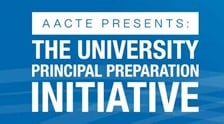 Throughout AACTE Presents: The University Principal Preparation Initiative (UPPI) podcast, guests have talked at length about the district’s role in working with preparation programs to produce effective school leaders, but what is the state’s role? Each of the seven programs in UPPI were given a state partner as well, and in the final episode of the podcast, AACTE talks to authors of two Wallace Foundation commissioned reports on state policy and principal prep about how UPPI programs should be leveraging their state partnerships.
Throughout AACTE Presents: The University Principal Preparation Initiative (UPPI) podcast, guests have talked at length about the district’s role in working with preparation programs to produce effective school leaders, but what is the state’s role? Each of the seven programs in UPPI were given a state partner as well, and in the final episode of the podcast, AACTE talks to authors of two Wallace Foundation commissioned reports on state policy and principal prep about how UPPI programs should be leveraging their state partnerships.
03 Feb2022
By Jacqueline Rodriguez
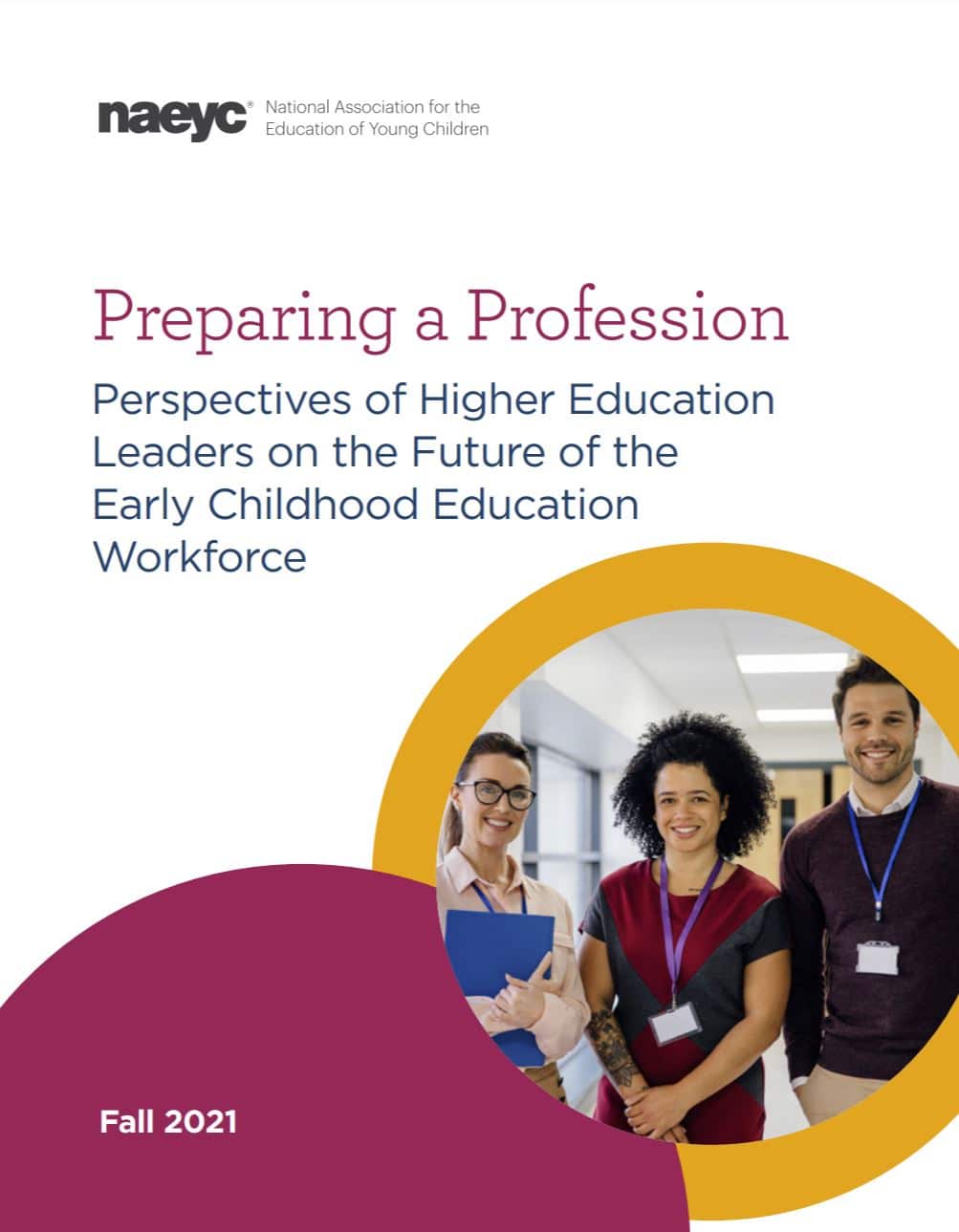 The growing interest by policymakers to provide early childhood education to learners across the country has been met with celebration by parents and families, and support from education organizations, including AACTE. The National Association for the Education of Young Children (NAEYC) recently released a groundbreaking report addressing the future of the early childhood profession, Preparing a Profession: Perspectives of Higher Education Leaders on the Future of the Early Childhood Education Workforce. The report synthesizes interviews with key education stakeholders, including AACTE President and CEO Lynn M. Gangone, focused on two key areas: What is the status of the early childhood profession? and What can education institutions be doing to strengthen the preparation of early childhood educators?
The growing interest by policymakers to provide early childhood education to learners across the country has been met with celebration by parents and families, and support from education organizations, including AACTE. The National Association for the Education of Young Children (NAEYC) recently released a groundbreaking report addressing the future of the early childhood profession, Preparing a Profession: Perspectives of Higher Education Leaders on the Future of the Early Childhood Education Workforce. The report synthesizes interviews with key education stakeholders, including AACTE President and CEO Lynn M. Gangone, focused on two key areas: What is the status of the early childhood profession? and What can education institutions be doing to strengthen the preparation of early childhood educators?
28 Jan2022
By Jacqueline Rodriguez
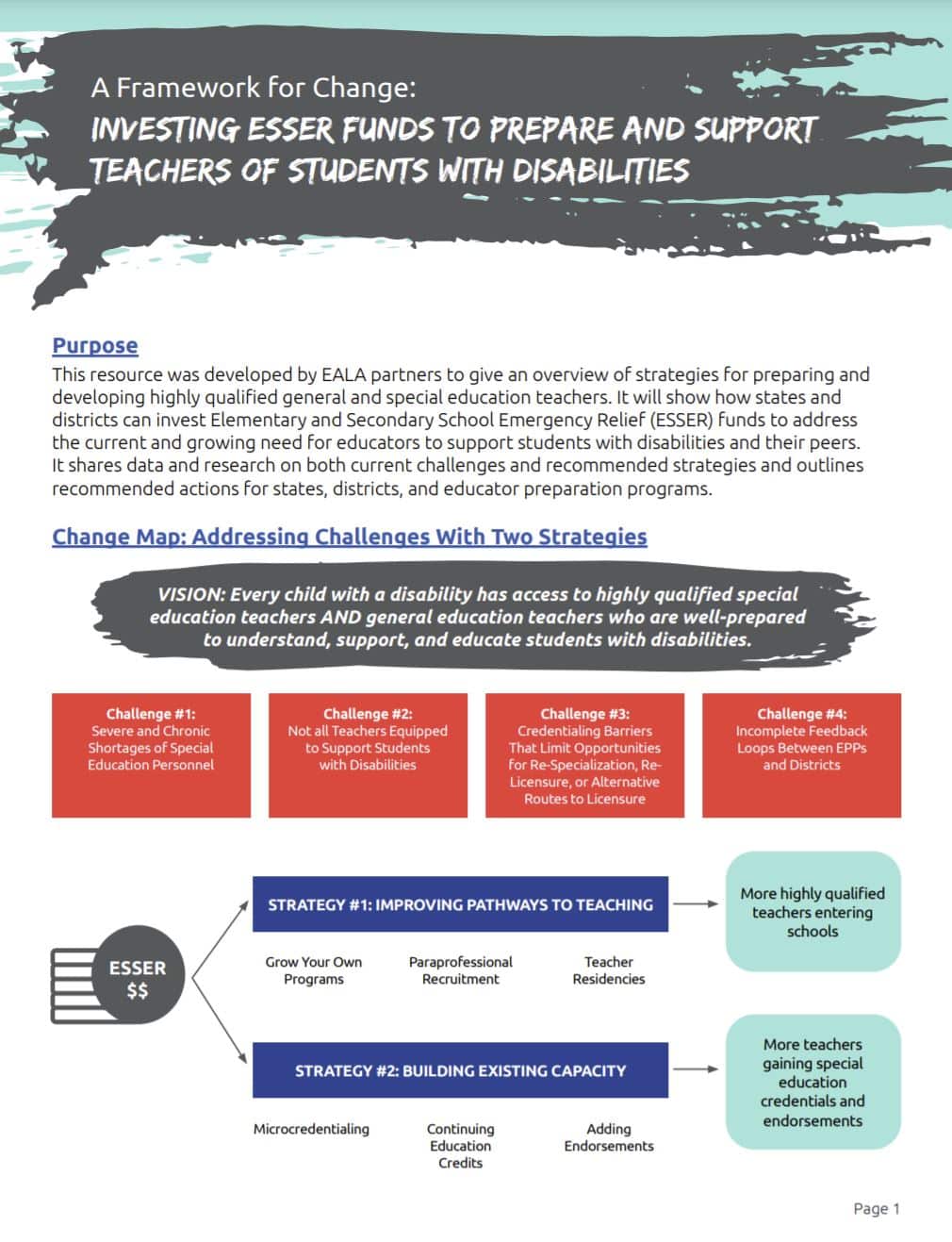 AACTE joined the Educating All Learners Alliance (EALA) in 2020 as the pandemic gave rise to the growing challenges to teaching students with learning differences online. The Alliance steadfastly supports PK-20 students through resource development, including the newest resource: A Framework for Change: Investing ESSER Funds to Prepare and Support Teachers of Students With Disabilities.
AACTE joined the Educating All Learners Alliance (EALA) in 2020 as the pandemic gave rise to the growing challenges to teaching students with learning differences online. The Alliance steadfastly supports PK-20 students through resource development, including the newest resource: A Framework for Change: Investing ESSER Funds to Prepare and Support Teachers of Students With Disabilities.
This resource was developed by EALA partners to give an overview of strategies for preparing and developing highly qualified general and special education teachers. It will show how states and districts can invest Elementary and Secondary School Emergency Relief (ESSER) funds to address the current and growing need for educators to support students with disabilities and their peers. It shares data and research on both current challenges and recommended strategies and outlines recommended actions for states, districts, and educator preparation programs.







 The Council of Chief State School Officers (CCSSO) today announced that Kurt Russell, a veteran high school history teacher, is the 2022 National Teacher of the Year.
The Council of Chief State School Officers (CCSSO) today announced that Kurt Russell, a veteran high school history teacher, is the 2022 National Teacher of the Year.
 In
In  AACTE continues its collaboration with AERA’s Division K: Teaching and Teacher Education to produce an in-depth, scaffolded, three-part series of professional learning opportunities addressing the recent uptick in education censorship across the nation. The first presentation of the series took place as a Deeper Dive session during AACTE’s Annual Meeting in New Orleans. On April 12, AACTE and AERA Division K will co-host a workshop:
AACTE continues its collaboration with AERA’s Division K: Teaching and Teacher Education to produce an in-depth, scaffolded, three-part series of professional learning opportunities addressing the recent uptick in education censorship across the nation. The first presentation of the series took place as a Deeper Dive session during AACTE’s Annual Meeting in New Orleans. On April 12, AACTE and AERA Division K will co-host a workshop:  Curtis Cain, superintendent of
Curtis Cain, superintendent of  Our nation’s most significant innovations stem from education. From the founding of our nation to the moon landing in 1969, from the introduction of personal computers in 1971 to the advent of the internet in 1983, such accomplishments would not have occurred without education and an educated populace. Without educators we will not continue to innovate, create, and lead the world. We have ignored the dwindling number of people entering the field of education for decades. As we continue to navigate the COVID-19 pandemic, the number of teachers exiting classrooms only continues to increase.
Our nation’s most significant innovations stem from education. From the founding of our nation to the moon landing in 1969, from the introduction of personal computers in 1971 to the advent of the internet in 1983, such accomplishments would not have occurred without education and an educated populace. Without educators we will not continue to innovate, create, and lead the world. We have ignored the dwindling number of people entering the field of education for decades. As we continue to navigate the COVID-19 pandemic, the number of teachers exiting classrooms only continues to increase. In February, Vice President for Research Policy & Advocacy Jacqueline Rodriguez and I presented at the National Teacher Shortage Summit. The Summit was hosted by the American Association of School Personnel Administrators and co-sponsored by numerous organizations, including AACTE. Our presentation summarized findings from numerous AACTE studies on trends in educator preparation and featured initiatives by several AACTE members to address the shortage of teachers and other essential educators.
In February, Vice President for Research Policy & Advocacy Jacqueline Rodriguez and I presented at the National Teacher Shortage Summit. The Summit was hosted by the American Association of School Personnel Administrators and co-sponsored by numerous organizations, including AACTE. Our presentation summarized findings from numerous AACTE studies on trends in educator preparation and featured initiatives by several AACTE members to address the shortage of teachers and other essential educators. AACTE joins the Learning First Alliance (LFA) in celebrating Public Schools Week 2022, February 21 – 25, a time for administrators, teachers, specialists, teacher educators, parents, and school board members to participate in events and discuss the importance of public education.
AACTE joins the Learning First Alliance (LFA) in celebrating Public Schools Week 2022, February 21 – 25, a time for administrators, teachers, specialists, teacher educators, parents, and school board members to participate in events and discuss the importance of public education. Throughout AACTE Presents: The University Principal Preparation Initiative (UPPI) podcast, guests have talked at length about the district’s role in working with preparation programs to produce effective school leaders, but what is the state’s role? Each of the seven programs in UPPI were given a state partner as well, and in the final episode of the podcast, AACTE talks to authors of two Wallace Foundation commissioned reports on state policy and principal prep about how UPPI programs should be leveraging their state partnerships.
Throughout AACTE Presents: The University Principal Preparation Initiative (UPPI) podcast, guests have talked at length about the district’s role in working with preparation programs to produce effective school leaders, but what is the state’s role? Each of the seven programs in UPPI were given a state partner as well, and in the final episode of the podcast, AACTE talks to authors of two Wallace Foundation commissioned reports on state policy and principal prep about how UPPI programs should be leveraging their state partnerships.  The growing interest by policymakers to provide early childhood education to learners across the country has been met with celebration by parents and families, and support from education organizations, including AACTE. The
The growing interest by policymakers to provide early childhood education to learners across the country has been met with celebration by parents and families, and support from education organizations, including AACTE. The  AACTE
AACTE